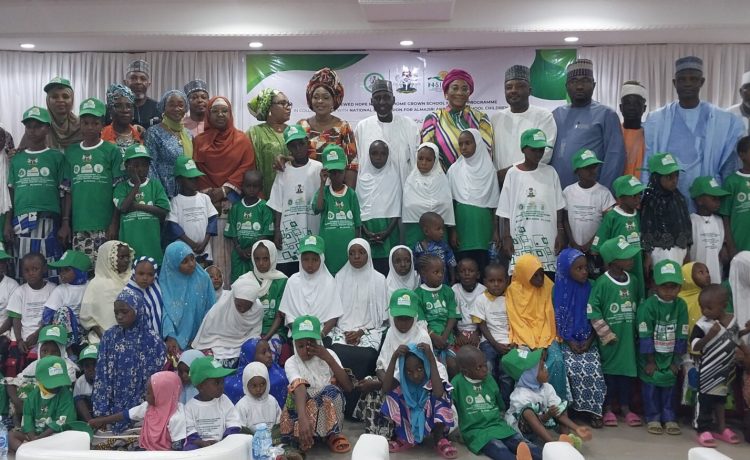The Federal Government has announced plans to expand the Homegrown School Feeding Programme to reach 20 million children by 2026, describing the initiative as both an educational investment and a national security strategy.
Vice President Kashim Shettima disclosed this on Friday at the National Policy Forum on the Institutionalisation and Implementation of the Renewed Hope National Homegrown School Feeding Programme in Abuja.
The event was hosted by the Presidential Committee on Economic and Financial Inclusion in partnership with ActionAid Nigeria and other stakeholders.
Represented by his Special Adviser on Economic Affairs, Dr. Kolade Fasua, Shettima described the programme’s relaunch earlier this year as the boldest in its history, under President Bola Tinubu’s Renewed Hope Agenda.
“The programme is designed to boost enrollment and attendance, improve academic performance, and raise smallholder incomes through stable local procurement,” he said.
Alongside the core school feeding programme, the government has introduced the Alternate Education and Renewed Hope School Feeding Project, targeting out-of-school and highly vulnerable children. The ambition is to reach up to 20 million beneficiaries by 2026.
To ensure transparency and accountability, Shettima said the integration of the National Identity Management Commission (NIMC) system would confirm that “real pupils receive real meals, and every naira spent works twice—once for the child, and once for the local economy.”
While acknowledging that sustaining nationwide coverage could cost up to ₦1 trillion, Shettima argued that the initiative should not be viewed as a financial burden but as a nation-building investment.
“Every hot meal served in a classroom also acts as a barrier against recruitment into violent groups, a reinforcement of the state’s presence, and a source of hope in conflict-prone communities,” he stressed.
The Vice President called on development partners, state governments, and private investors to align with the federal government’s vision, noting that success would be measured not just by hunger-free classrooms but by safer, more resilient communities.
Also speaking at the event, Minister of State for Humanitarian Affairs and Poverty Reduction, Dr. Tanko Sununu represented by Director of Social Development, Mr. Valentine Ezulu—advocated for a National Home Grown School Feeding Act to provide legal backing for the programme. He also called for a nutrition guideline aligned with international best practices to ensure balanced and healthy meals for children.







